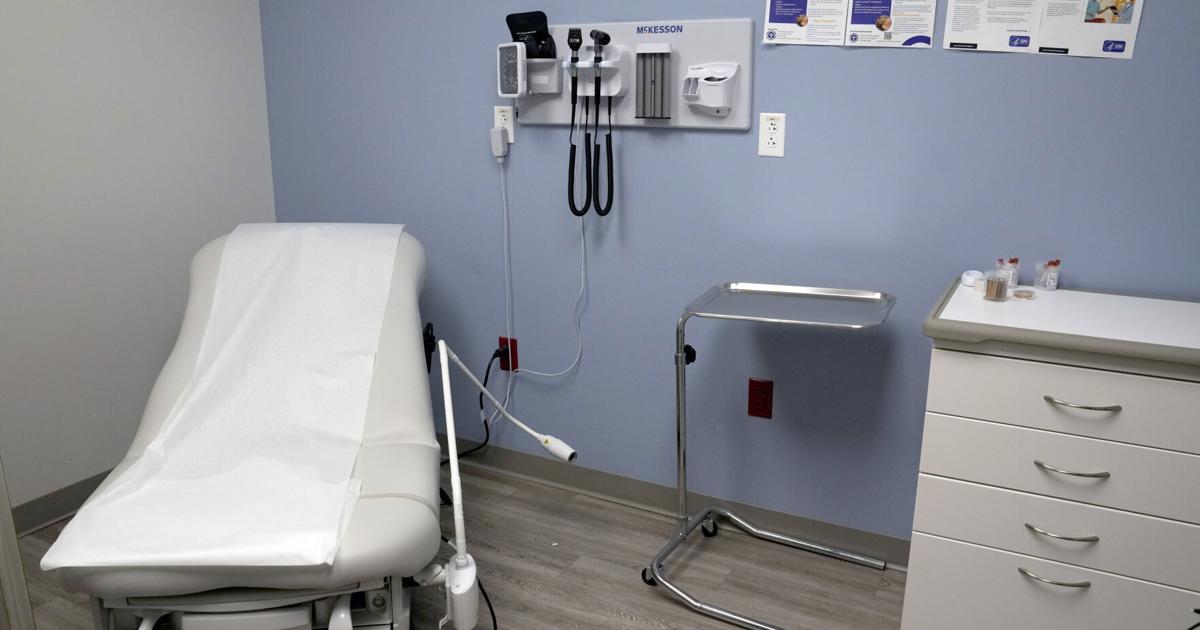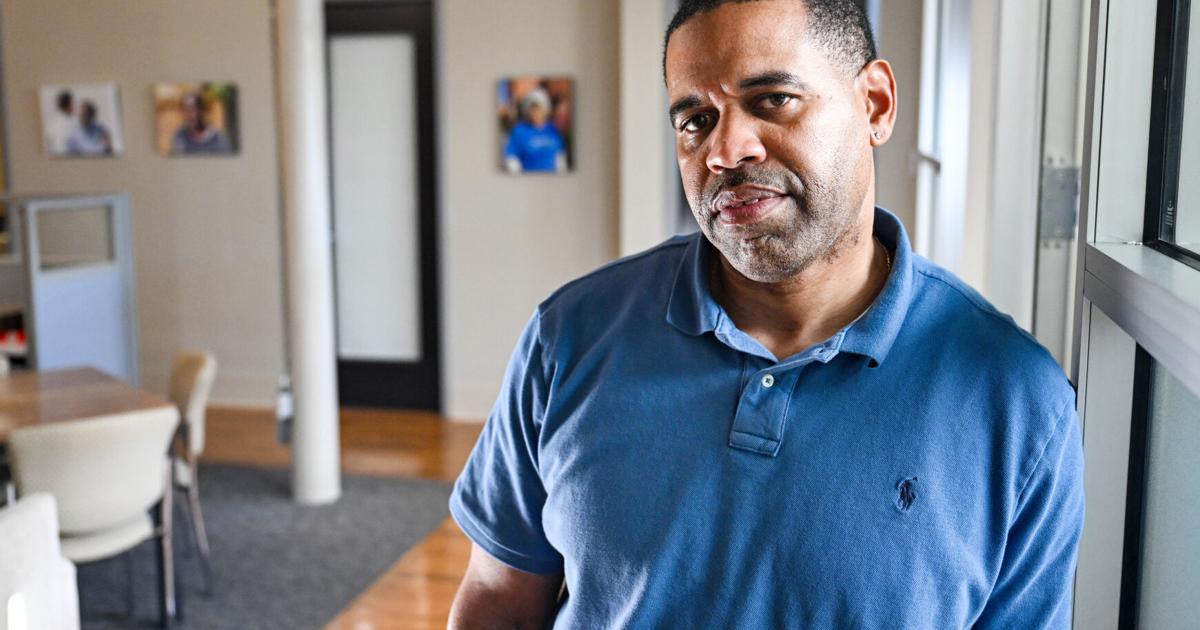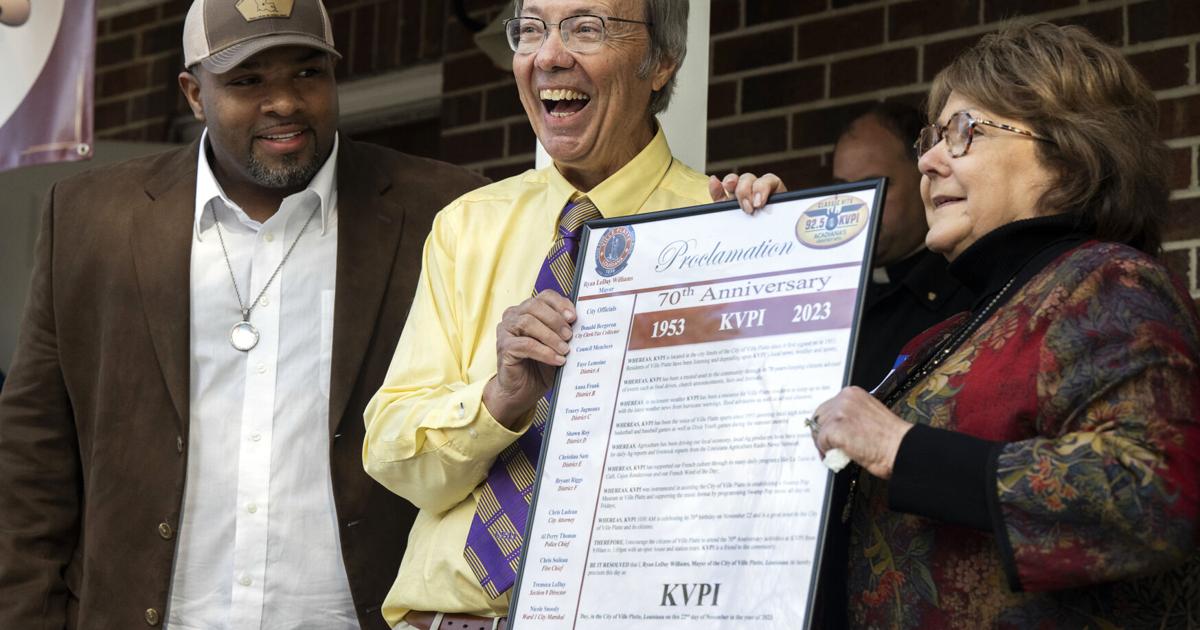Louisiana
Nurse midwives could ease Louisiana’s infant mortality crisis. Why hasn’t the state embraced them?
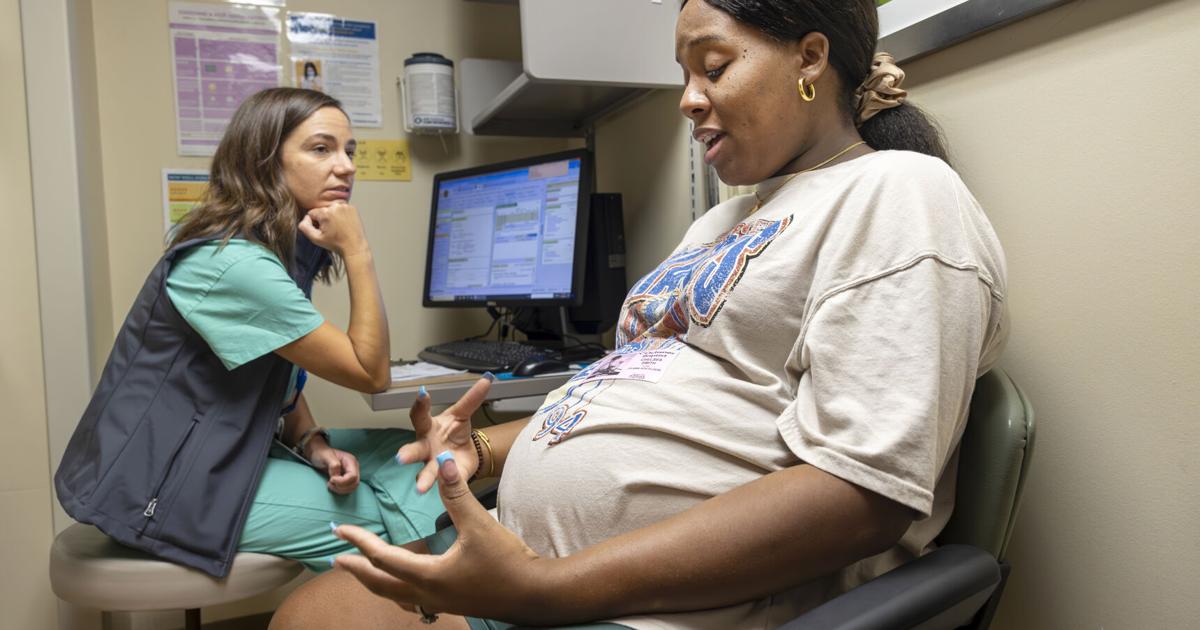
Not a single doctor provides obstetric care in 17 of Louisiana’s 64 parishes.
And so far, financial incentives to persuade more OB-GYNs to move to rural communities have not changed that stark fact.
Yet even as medical recruiters double salaries and offer signing bonuses, Louisiana is doing little to help attract a group of health care providers who could fill that dangerous gap: certified nurse midwives.
Across the state, Louisiana hospitals are refusing to hire them, despite their extensive credentials. Others will not give them admitting privileges. Louisiana also pays nurse midwives less through Medicaid than many other states.
Dr. Rakhi Dimino, the medical director for OB Hospitalist Group, which hires obstetricians and nurse midwives for hospitals here and nationwide, said that unless the state alters course, “We will never be able to serve all the women who need care.”
The scarcity of nurse midwives is one reason Louisiana has one of the worst infant mortality rates in the developed world, and why mothers often fare no better.
Infants here are 65% more likely to die from being born too early or too small compared to babies in the rest of the country, according to a Times-Picayune | The Advocate analysis of Centers for Disease Control and Prevention data.
Louisiana also has one of the lowest numbers of nurse midwives per capita in the nation: less than 2 for every 100,000 residents. The few who are active here mostly work in parishes where women already have broad access to obstetric care and where their services are less urgently needed.

In many other states, including most places with better birth outcomes, nurse midwives are common in hospitals.
They work alongside OB-GYNs and manage low-risk pregnancies. They can prescribe medicine to manage some medical conditions. They free up doctors to focus on more complicated deliveries and cesarean sections.
It’s important for nurse midwives to work on teams with physicians in hospitals because they cannot perform surgeries like C-sections. But they can provide solid prenatal care and oversee straightforward deliveries, services sorely lacking in parts of the state.
Still, only a handful of hospitals in Louisiana have embraced them.
Among them: Ochsner Health. A team of nurse midwives works on the fourth floor of Ochsner Baptist in New Orleans, known as the Perkin Alternative Birthing Center, and they also attend deliveries two floors above in the hospital’s labor and delivery unit.
Geralyn Beler, right, talks about her pregnancy with Natalie Harvey, a certified nurse midwife with Ochsner Baptist, in New Orleans on Wednesd…
On a recent summer morning, nurse midwife Natalie Harvey had a full slate of patients there for prenatal care. One of them was Geralyn Beler, who was 10 weeks pregnant with her third child.
“You’ve done this before,” Harvey, 38, told Beler.
“Not this way,” responded Beler, also 38, who was new to the practice run by nurse midwives.
Midwives are ‘the expert in normal’
Harvey became a nurse midwife after what felt like an inescapable call to catch babies.
The timing was not ideal: She was 30, ran a business with her husband and had just had her second son. But giving birth was a transformative experience for her, and she felt a strong pull to help other Louisiana mothers, knowing how grim the statistics are.
She already had a mass communication degree. She went back to school for three academic years to become a registered nurse. Then she spent two and a half more becoming a certified nurse midwife, a credential that allows her to deliver babies, provide obstetric and gynecological care and prescribe medicine.
There were no programs in Louisiana offering the degree. She took online coursework with Kentucky-based Frontier Nursing University and had a third son while doing so. She’s now pursuing her doctor of nursing practice.

Geralyn Beler clasps her hands in front of her belly as she talks about her pregnancy with Natalie Harvey, a certified nurse midwife with Ochsner Baptist, in New Orleans on Wednesday, July 26, 2023. (Photo by Chris Granger | The Times-Picayune | NOLA.com)
Nurse midwives generally advocate for few interventions in the absence of complications in birth, so many of their patients choose to forgo epidurals, inductions and other common procedures. A core tenet of their practice is to trust the patient to make her own decisions, and to help educate and empower.
But in setups like Ochsner’s, patients can still deliver with a nurse midwife even if they choose to receive interventions. If a patient wants an epidural, for example, nurse midwives can still attend their delivery on the traditional labor and delivery floor instead of in the birth center, while an anesthesiologist will give the injection.
Nurse midwives work at other Ochsner campuses as well, including in Baton Rouge.
Some evidence suggests states with more midwives have lower rates of preterm birth, low birth weight, C-sections and other types of poor outcomes. But the relationship may be correlative rather than causal: States with more midwives also tend to be those with healthier populations and less poverty.
“Midwives are the expert in ‘normal’: periods, pregnancy, menopause are all normal stages of life for women,” said Michelle Collins, dean of Loyola University’s College of Nursing and Health.
Collins is also a nurse midwife and oversees a new master’s program at Loyola to train more. LSU Health New Orleans also recently started a doctorate program in nurse midwifery. Both say they hope to graduate more students of color to diversify an obstetric workforce that’s overwhelmingly White.
They hope it will change disparities in outcomes: Black infants in Louisiana are 3.6 times more likely to die from premature birth and low birth weight than White infants. And Black mothers are more than twice as likely to die from pregnancy-related complications here than White mothers.
“One of our goals of starting a program here in Louisiana is to have a midwifery population that looks like the population they serve,” said Shannon Pfingstag, a nurse midwife and the LSU Health New Orleans program coordinator.
Louisiana has just 85 licensed and active nurse midwives, though fewer may practice. Most are clustered in New Orleans and Baton Rouge, with a handful in smaller cities like Lafayette and Hammond.
“Having more midwives here in Louisiana is only going to be a positive thing,” Harvey said.
Though nurse midwives must have either master’s or doctoral degrees, Louisiana restricts them in ways that do not apply to less formally educated licensed midwives, who may lack even a bachelor’s degree.
Lack of jobs, low reimbursement rates are barriers
Growing the ranks of nurse midwives is also not as simple as churning out more graduates.
“We can make all the midwives we want, but we have to have physician support and we have to have hospital support,” said Elizabeth Fontenot, a nurse midwife and the clinical director for the Birth Center of Baton Rouge. “We have to have physicians who are hopefully eager to collaborate with us and hospitals who are hopefully eager to hire us.”
Nurse midwifery students are required to get hands-on experience in school under active nurse midwives. But since there are so few practicing in the state, it’s hard to train the next generation.

Natalie Harvey, left, a certified nurse midwife with Ochsner Baptist, talks with patients in New Orleans on Wednesday, July 26, 2023. (Photo by Chris Granger | The Times-Picayune | NOLA.com)
And when nurse midwives treat Medicaid patients in Louisiana, they receive especially low payments. While all providers earn less from Medicaid than they would from Medicare and commercial insurance, the problem is acute for nurse midwives.
For every dollar obstetricians in Louisiana make when they treat Medicare patients, they earn just 66 cents for patients on Medicaid. Nurse midwives in Louisiana have historically received even less than that — 80% of the physician rate.
It plays out like this: An obstetrician whom Medicare paid $1,000 for a specific procedure would receive just $660 for the same procedure under Louisiana’s Medicaid rates. A nurse-midwife would earn just $528 for the same service.
Louisiana has the highest share of births financed by Medicaid of any state.
“It becomes very difficult … to actually make enough money to pay salaries for everybody if you only have reimbursements for Medicaid patients,” Pfingstag said.
Arden Schwenker, the chief financial officer for a national consulting firm called Grow Midwives, said nurse midwives often must see two Medicaid patients to earn as much as they’d get from a single privately insured patient.
This spring, the Legislature upped the Medicaid reimbursement rates for midwives from 80% of the physician rate to 95%.
The lower rate, which had been in place for years, is one of many reasons why Louisiana has long fared poorly on a state-by-state report card on infant and maternal outcomes that the national nonprofit March of Dimes issues annually. In more than half of states, nurse midwives receive the same rate as physicians.
While some researchers argue for equalizing the rates, others say that physicians — who go through far more schooling, plus residency — should earn more for their services.
“As someone who spent eight years becoming a physician and then becoming an OB, I do think there’s some justification for paying a physician more for a delivery,” said Dr. Rebekah Gee, the former state health secretary. “But I don’t think that’s the main barrier [for nurse midwives]. I think it’s the issue of not being welcomed often.”
Gee said she trained with nurse midwives during her residency in Boston and saw firsthand how helpful they can be in normal deliveries and lowering C-section rates.
But while obstetric care has all but disappeared in rural areas, it remains a competitive market in more urban areas, and nurse midwives can be seen as unwelcome competitors.
Credentialing varies among midwives: not all are nurses
While there are many restrictions on nurse midwives in Louisiana, a less rigorously trained variety of midwife, confoundingly, has more flexibility to open practices or birth centers. Those are known as “licensed midwives” or “certified professional midwives.”
These midwives need not be registered nurses, nor are they even required to have college degrees. They can become certified through midwifery schools, which may not be accredited, or learn through apprenticeships. They gain their title by passing a national exam.
When women give birth at home in Louisiana, they’re often attended by these “licensed midwives.” It’s a controversial practice.

Nurse-midwives on the fourth floor of Ochsner Baptist in New Orleans, known as the Perkin Alternative Birthing Center, stand in front of a wall of photos of babies born at the hospital. (Photo by Chris Granger | The Times-Picayune | NOLA.com)
Hospitals and birth centers are the safest locations to give birth, according to the American College of Obstetricians and Gynecologists. The group cites data that says planned home births have more than twice the risk of perinatal death and three times the risk of neonatal seizures or other neurological dysfunction.
Planned home births had a neonatal mortality rate of 13.66 per 10,000 live births, four times the rate for nurse midwife-attended births in hospitals, according to a 2020 study in the American Journal of Obstetrics and Gynecology. Unplanned home births were twice as dangerous as planned ones.
The study concluded that the birth setting was more important than the type of attendant.
Midwives are supposed to take on only low-risk patients with healthy pregnancies. But there are glaring examples where practitioners ignored that guidance, with deadly results.
In 2008, the Louisiana Board of Medical Examiners revoked Kami Dehler’s midwifery license over a botched delivery. Doctors warned the mother she had a high-risk pregnancy, but Dehler still accepted her as a patient for home birth. The mother labored for 54 hours, and her daughter was pronounced brain-dead shortly after birth.
The medical board also found that Dehler had wrongly advertised herself as a “doctor” even though her naturopathic medicine degree was not recognized in Louisiana. Dehler continues to advertise herself as a naturopathic doctor practicing in Covington who focuses on plant-based therapies and holistic healing.
Dehler did not return a message for this story.
Despite the large gaps in formal education between licensed midwives and nurse midwives, the state’s Medicaid regime pays them the same.
Licensed midwives, meanwhile, may open free-standing birth centers in Louisiana without physician input or collaboration, so long as they follow state laws. They must develop a referral system for complicated pregnancies and locate within 30 miles of a hospital that can perform an emergency C-section.
But nurse midwives cannot open birth centers, clinics or even work without a “collaborative practice agreement” with a physician.
Such requirements have long been the subject of debate: The state suspended the rules during the pandemic, but they’ve since been reinstated. About half of states do not require collaborative practice agreements for certified nurse midwives.
Some Louisiana nurse midwives say those rules prevent them from opening practices that could expand access to health care. Their profession often feels called to serve those who have historically lacked access or had bad experiences with the system, according to Collins and Pfingstag.
“Whether there’s a written agreement or not, we always work in a way that we can collaborate with physicians who are able to provide a higher level of care if that’s necessary,” Pfingstag said.
But the American Medical Association has vigorously fought efforts to relax such rules across the country, including in Louisiana. They say patients prefer physician-led care and point out that advanced practice nurses still have far less training than doctors.
The AMA also disputes the notion that states could eliminate health care deserts if nurse practitioners were given the unfettered ability to practice. In states without collaborative practice requirements, many places still lack practitioners.
“Laws that expanded the scope of practice for nonphysicians have not correlated to increased number of nonphysicians moving into those rural areas,” said Kimberly Horvath, a senior attorney with the AMA, in a policy brief.
A 2017 Journal of Health Economics study found few differences in maternal and infant health outcomes between states that more strongly restrict nurse midwives and those where they have full practice authority. The authors deemed the restrictions on certified nurse midwives “neither helpful nor harmful” for outcomes, but said states without the restrictions had lower rates of induced labor and C-sections.
Those states, however, often have lower rates of chronic health conditions to begin with. In states like Louisiana, high rates of chronic health problems often lead to high-risk pregnancies, making C-sections more common.
Physician shortages affect the whole state
While Louisiana’s high rates of infant and maternal mortality underscore the need for a stronger obstetric workforce, those statistics might also chase away some potential providers.
“Physicians obviously care a lot about their patients, and they want to practice in a place where they will have minimal casualties,” said Cody Futch, vice president of recruiting for Dallas-based AMN Healthcare’s physicians solutions division.
He said it’s a chicken-or-egg question.
“The maternal mortality rates may be high because of a lack of providers,” Futch said. “And it may, in turn, perpetuate that lack of providers.”
Ideally, experts say, Louisiana would have broad coverage from a range of providers: maternal-fetal medicine specialists, OB-GYNs and nurse midwives, who can each treat different levels of pregnancy-related complications.
But that’s not happening.

Natalie Harvey, a certified nurse midwife with Ochsner Baptist, makes a bed in one of the patient rooms in New Orleans on Wednesday, July 26, 2023. Increasing the number of nurse-midwives in Louisiana is one way that the state can improve birth outcomes and fill gaps in maternity care deserts. (Photo by Chris Granger | The Times-Picayune | NOLA.com)
Dimino said her group had to resort to hiring out-of-state OB-GYNs to help staff Beauregard Health System in rural DeRidder because they could not persuade doctors to move there. They fly the physicians in from Texas for five days at a time before swapping them out.
Futch noted that OB-GYNs are in high demand and often have options in cities with better amenities. And even for those willing to live in rural areas, practicing without support from other clinicians can be both daunting and exhausting.
“The smaller the community, the less subspecialty support OB-GYNs have,” Futch said. “If you’re in New Orleans, you have (maternal-fetal medicine) specialists; you have Children’s Hospital if you have complications with a newborn.”
Dimino said OB Hospitalist Group has struggled to attract physicians to Louisiana in general, including in Baton Rouge, East Jefferson, Lafayette, Shreveport and Alexandria.
The difficulty of recruiting physicians to north Louisiana, which has the highest rates of infant mortality in the state, is especially acute, said Dr. Dani Zoorob, the OB-GYN chair for Ochsner LSU Health Shreveport.
“There is a significant shortage on the physician side as well as the nursing side,” Zoorob said. “I would love if we can get more doctors in this area to try to help us address our patients’ needs.”
Programs that offer to help eliminate student debt could help, Futch said. He also said states could incentivize physicians who have trained in other countries to work in rural areas by offering them permanent resident status.
Recruitment has also become more difficult in states with strong abortion restrictions, like Louisiana, in the wake of the U.S. Supreme Court’s ruling in the Dobbs case last year, Futch said. He said that’s not necessarily because physicians support abortion, but that they worry about practicing in an environment where politicians are threatening to prosecute them as they make emergency decisions about how to save mothers if their pregnancy becomes life-threatening.
“Providers are scared to intervene for things like miscarriage because the procedure you would do for a miscarriage is very similar to the procedure you would do for an elective abortion,” Gee said. “So there’s a lot of fear just to do well-woman care.”

Louisiana
Louisiana congressional map ruling appealed to the U.S. Supreme Court
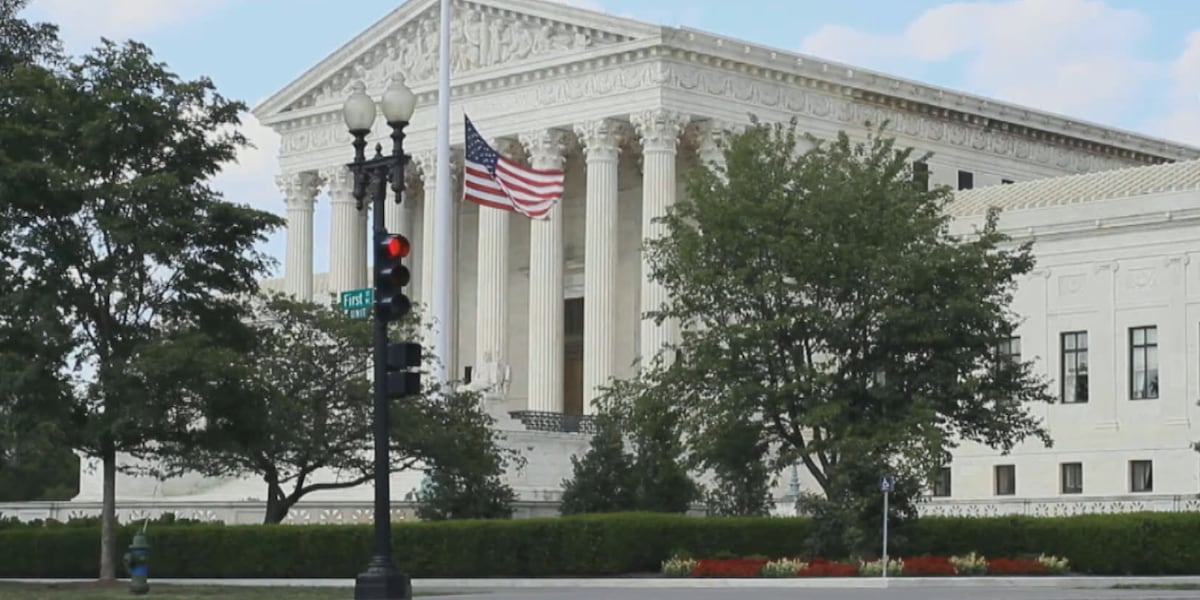
SHREVEPORT, La. (KSLA) — The Louisiana NAACP, the Power Coalition for Equity and Justice and nine individuals appealed a ruling on Louisiana’s congressional map to the U.S. Supreme Court on Wednesday (May 1).
A Louisiana public service commissioner told KSLA News 12 they filed the appeal because they are going to keep fighting to have two majority-minority districts since one-third of the state’s population is African-American.
Read the appeal:
On Tuesday, a federal three-judge panel overturned the map that includes a 6th Congressional District that stretches from Shreveport to Baton Rouge.
[ Louisiana won’t immediately get a new majority-Black House district after judges reject it]
“The court’s decision yesterday puts us in complete flux because we have elections coming down in November. The state has argued they need a congressional map by May 15,” District 3 Public Service Commissioner Davante Lewis said Wednesday. The Democrat is one of the plaintiffs in the case.
Earlier this year, a judge asked Louisiana lawmakers to create a new congressional map because the previous one violated the Voting Rights Act.
A Louisiana state senator said he supports the court’s decision to overturn the latest map.
“What the court said is that the racial component would be a violation of the Fourteenth Amendment protection laws that are provided under the United States Constitution,” said District 38′s Thomas Pressly, who is a Republican.
The Louisiana Democratic Party issued the following statement:
“Despite this ruling, it remains evident that a second Black majority district is essential for ensuring fair and equitable representation for Black voters in Louisiana. We are steadfast in our commitment to advocating for the fundamental rights of Black Louisianians whose voting influence has consistently faced significant dilution.”
A Shreveport resident told KSLA News 12 it is important for the state of Louisiana to have fair representation with the congressional map.
Another person who identified herself only as Mrs. Peggy had a different thing to say. “I am neutral.”
Copyright 2024 KSLA. All rights reserved.
Louisiana
Wealthier and Whiter: Louisiana School District Secession Gets a Major Boost
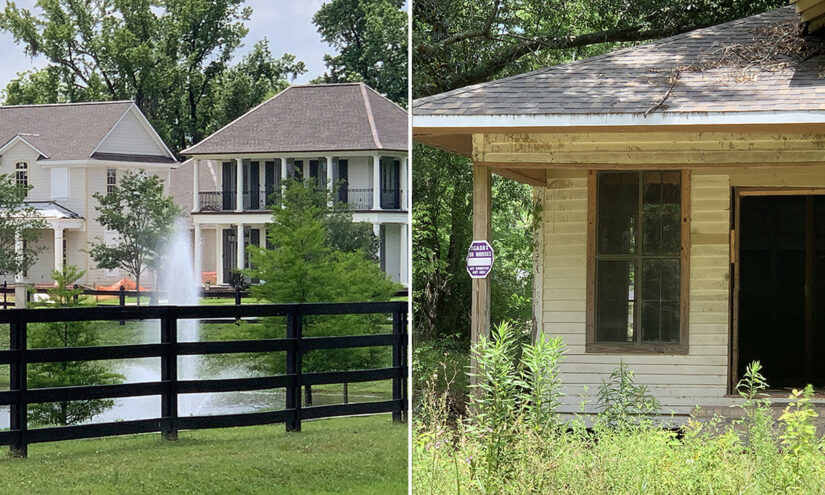
Help fund stories like this. Donate now!
A recent decision by the Louisiana Supreme Court handed a decisive win to backers of a long-running campaign to create a new, overwhelmingly white Baton Rouge-area school system, further concentrating poverty in the remaining, majority-Black part of the district.
When finalized, the secession will likely cost East Baton Rouge Parish Public Schools 10,000 students and 25% of its $700 million budget, school board President Dadrius Lanus estimated.
“This is all rooted in institutional racism,” he said in an interview. “It’s about what white, middle-class people want for their kids.”
Barring complications, it will be the fifth time in nearly a quarter-century that part of the district has broken off and formed its own school system. Currently, the district — Louisiana’s second-largest — has 40,000 students. Ninety percent are impoverished.
A complicated tangle of laws governs the creation of new school districts, with the most straightforward path being the formation of a new municipality corresponding to the area seeking to break away. A decade ago, residents of the affluent southeast quadrant of the parish began campaigning to create a new city, St. George.
In 2019, 54% of the area’s residents voted to incorporate as a standalone municipality. Baton Rouge leaders sued, and in late April the state’s high court ruled in favor of the new city’s proponents. Republican Gov. Jeff Landry will now appoint St. George’s first mayor and five city council members.
The St. George area is represented by East Baton Rouge School Board member Nathan Rust, who backed the breakaway. Rust could not immediately be reached for comment, but his campaign website includes a statement decrying the condition of local schools.
“Our schools in District 6 are overcrowded and fraught with violence, disruption and an exodus of quality teachers,” it states. “After 20 years of Board Tenure, how is this the best public education offered to our children?” Many parents, it adds, “resort to spending their hard-earned money on private schools because they have no better option.”
In 2109, The 74 published a deep dive into a decades-long school integration scheme that shaped the district, the first four secessions and the potential implications of a St. George breakaway. Under the terms of a desegregation order — no longer in force — many East Baton Rouge students attend magnet schools that are spread throughout the district. Consequently, many children who live in the most impoverished neighborhoods — many still devastated by recent floods — attend schools in the St. George area.
According to Lanus, the existing district has 90 days to “annex” the 10 existing schools and two properties where it had planned to build schools within the new city’s boundaries — all of which were purchased or built by parish taxpayers. St. George residents would then have a choice: pay to build their own schools, or attempt to buy existing school facilities and lots from the East Baton Rouge district. As yet unknown is whether the district would be willing to sell and, if not, how many students would be bused into the new city to attend existing district schools.
The secession would also shift an unknown but significant amount of local tax revenue to the new city, further straining the East Baton Rouge district’s coffers. Lanus estimates the district will lose some $150 million in per-pupil state and federal aid, plus money that is supposed to flow to children in poverty, magnet school students and those receiving special education or gifted-and-talented services.
“I can’t tell you how many calls I’ve gotten from parents saying, ‘What’s going to happen to my kids?’ ” said Lanus. “We don’t have any time to waste.”
Help fund stories like this. Donate now!
Louisiana
Louisiana police clear out anti-Israel encampment at Tulane University, arrest 14 protesters

Louisiana State Police cleared out an encampment of anti-Israel protesters from Tulane University early Wednesday morning, making 14 arrests during the operation.
As with campuses across the country, protesters had occupied Tulane’s lawn for days ahead of the police action. Police first attempted to disperse the crowd at 3 a.m. local time. Many protesters remained seated and refused to leave, however, and police ultimately arrested eight women and six men, according to NOLA.com.
The encampment was cleared by 4:30 am.
Tulane University administrators and police held a press conference Wednesday morning after police cleared out the area. New Orleans Police Department Superintendent Anne Kirkpartrick said police waited two days before taking action.
TRUMP SAYS 4 WORDS ABOUT ANTI-ISRAEL PROTESTS ON COLLEGE CAMPUSES AS ARRESTS SKYROCKET
Louisiana State Police cleared out an encampment of anti-Israel protesters from Tulane University early Wednesday morning, making 14 arrests during the operation. (AP Newsroom)
“We wanted people to be able to have voice and yet not create a violation of the law,” Kirkpatrick said. “This is protected property. We wanted to give them an opportunity to peacefully remove themselves and not violate the rights of others as well.”
The operation at Tulane occurred the same night that the New York City police cracked down on anti-Israel protesters who broke into and occupied a building on Columbia University’s campus.
VIRGINIA TECH POLICE PHYSICALLY CARRY AWAY ANTI-ISRAEL AGITATORS AMID EFFORT TO RESTORE PEACE ON CAMPUS
Columbia had also made efforts to tolerate the protests for as long as possible, but administrators said they were left with “no choice” once protesters broke into Hamilton Hall.
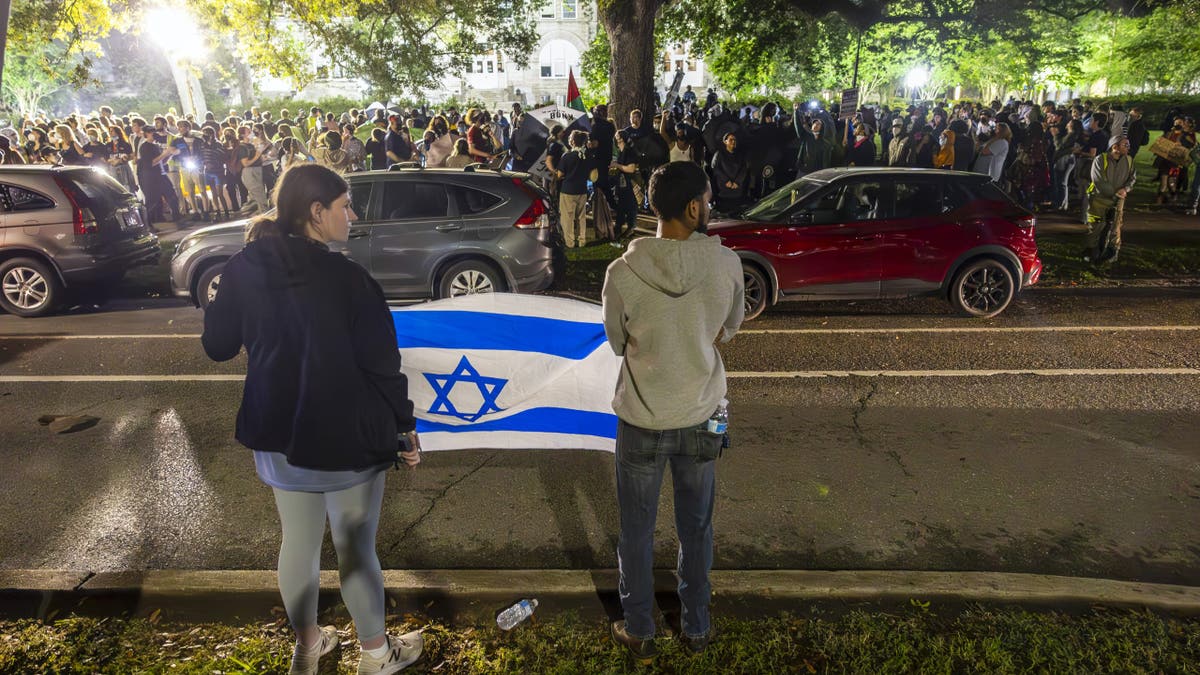
Counterprotesters with an Israeli flag stand across the street from anti-Israel agitators at Tulane University in New Orleans. (AP Newsroom)
UT-AUSTIN PRESIDENT DEFENDS SHUTTING DOWN ANTI-ISRAEL PROTESTS: ‘OUR RULES MATTER AND THEY WILL BE ENFORCED’
Universities across the country are resorting to more direct measures to end student protests as major end-of-year events approach. Columbia has reaffirmed its commitment to hold commencement ceremonies despite the unrest. The event is scheduled for May 15.
Not all universities have been so confident, however. The University of Southern California canceled its main graduation ceremony last week.

Anti-Israel demonstrators gather in front of Tulane University in New Orleans, Monday night. (AP Newsroom)
CLICK HERE TO GET THE FOX NEWS APP
Columbia had initially tried negotiating with student protesters, but the school’s president, Minouche Shafik, announced in a statement earlier this week that the talks had gone nowhere.
-

 Education1 week ago
Education1 week agoVideo: Dozens of Yale Students Arrested as Campus Protests Spread
-

 News1 week ago
News1 week agoLarry Webb’s deathbed confession solves 2000 cold case murder of Susan and Natasha Carter, 10, whose remains were found hours after he died
-

 World7 days ago
World7 days agoHaiti Prime Minister Ariel Henry resigns, transitional council takes power
-

 Politics1 week ago
Politics1 week agoFetterman hammers 'a–hole' anti-Israel protesters, slams own party for response to Iranian attack: 'Crazy'
-

 World1 week ago
World1 week agoPeriod poverty still a problem within the EU despite tax breaks
-

 World1 week ago
World1 week agoUS secretly sent long-range ATACMS weapons to Ukraine
-

 News7 days ago
News7 days agoFirst cargo ship passes through new channel since Baltimore bridge collapse
-

 World1 week ago
World1 week agoTurkey’s Erdogan meets Iraq PM for talks on water, security and trade
